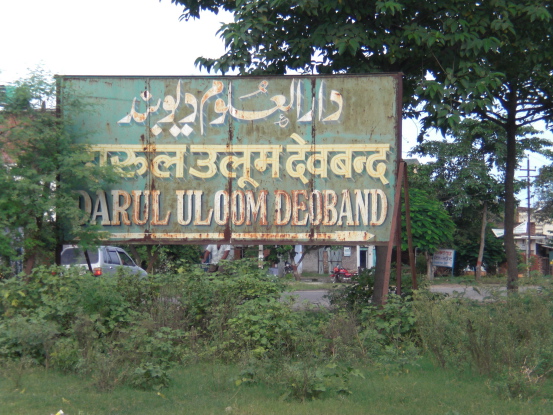
The Deoband seminary is one of the most important training centres of Sunni Islam. Founded in 1866 by Muhammad Qasim Nanaotawi and Rashid Ahmad Gangohi, the seminary started off as a small mosque promoting a reformist version of Sunni Islam. Nanaotawi and Gangohi were foremost concerned by the spread of English-language education facilitated by British colonial rule. Their initiative was designed to address the educational deficit as a first step to revitalising Islamic teaching and training in the Indian subcontinent. Broader goals included the spread of a new reformist and purist brand of Islam amongst the Muslims of the Indian subcontinent.
The Deoband has spawned many offshoots, by far the most important and influential of which is the Tablighi Jamaat (Society for Preaching), an Islamic missionary organisation. Formed in 1926 and now operating across the globe with tens of millions of followers, the Tablighi Jamaat is widely considered to be the largest Islamic movement in the world [1]
There have also been splits at the core Deoband seminary, the most recent of which occurred in 1982 and revolved around operational and management differences, as opposed to ideological schisms. The splitters established a smaller seminary barely a stone’s throw away from the core seminary.
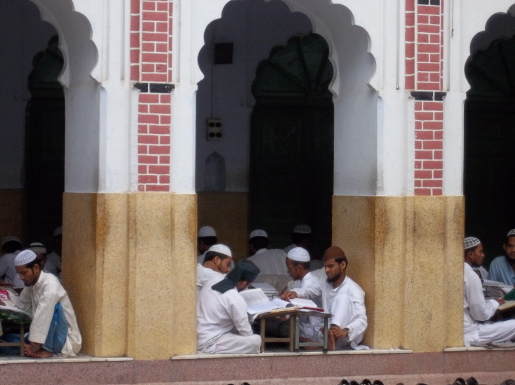
In the almost 150 years since its establishment Deoband’s performance has been mixed. As a religious institution it has doubtless proved a success, as evidenced by the tens of thousands of young men it has trained in the Islamic sciences over the decades. But at a broader cultural and religious level it hasn’t succeeded in institutionalising its reformist and purist brand of Islam in the fabrics of Indian Muslim society. In fact it has encountered fierce resistance, particularly from the adherents of the Barelvi movement, who advocate a traditional and more Sufi-oriented faith. As far as popular sentiment and allegiances are concerned, the Barelvis command support amongst the majority of Indian Muslims, indeed the majority of Muslims across the Indian subcontinent.
However, Deoband’s real success has been the spread of its methodology and beliefs beyond the Indian geopolitical space, first to neighbouring countries and then to the world at large. Indeed, the Deoband movement has spread across the world; from South Africa to the United Kingdom. Ironically this global success has rebounded negatively on the core Deoband seminary in so far as questionable statements and actions – and in some cases even militant activity – by Deobandis in other parts of the world has focussed media attention on the unassuming seminary in Uttar Pradesh.
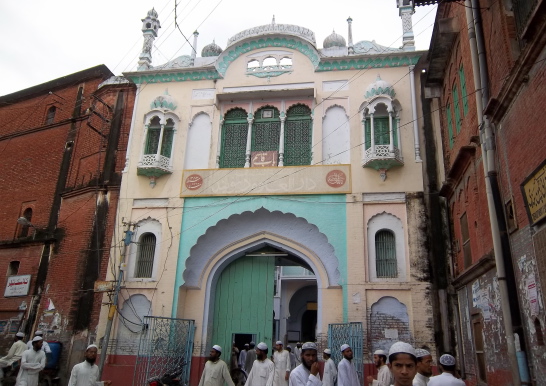
By far the most glaring example of the peripheral Deoband impacting negatively on the core, are the actions of a militant religious students’ movement in Afghanistan known as the Taliban (religious students). The Taliban first emerged on the Afghan political landscape in the early 1990s, before scoring a series of conquests culminating in their capture of the capital Kabul in September 1996. They held power in Afghanistan until December 2001 before they were ousted in a military operation spearheaded by the United States and supported by many other countries around the world. Despite losing their position as a ruling group the Taliban still constitute the most powerful political entity in Afghanistan, as confirmed by their leading role in the anti-coalition insurgency.
The characteristics of Taliban rule in Afghanistan were marked foremost by the fierce and seemingly unflinching determination to apply extreme and purist Islamic concepts, norms and standards on the rest of society. The harshness of this rule stimulated many Western journalists and scholars to search for its ideological and religious origins, and it seemed that all signs pointed to Deoband. This search for origins gathered pace in the wake of the 11 September 2001 attacks on the World Trade Centre in New York and the Pentagon. A plethora of articles in the western press attempted to situate Deoband in the ideological cosmos of the Taliban – and by extension the terrorist attacks on the United States – even though the Taliban appear to have had nothing to do with 9/11, beside providing sanctuary for the organisation that is widely believed to have planned and financed the attacks [2].
Politics and media spin aside, the Afghan Taliban self-identify as Deobandis, meaning that they trace their ideological and theological origins to the reformist Islamic trend that emerged in northern India in the middle of the 19th century. However, the vast majority of Taliban foot soldiers as well as the leadership have never set foot in India, let alone Deoband. Instead they were trained in Deobandi madrassahs (religious schools) on the Afghan-Pakistan border, and to a lesser extent in the interior of Pakistan. These madrassahs have little or no connection to the core Deoband, and in any case none of their actions (good or bad) can be traced to the unassuming seminary in rural Uttar Pradesh.
Interviewing the Leadership
We arrive in Deoband in mid September, at a time when the seminary is quieter than usual and most of the students appear to be “freshers” who are busy completing the registration process. We drive across the seminary passing the main mosque and the student dormitories before we arrive at the administrative buildings, situated at the southern extremity of the compound.
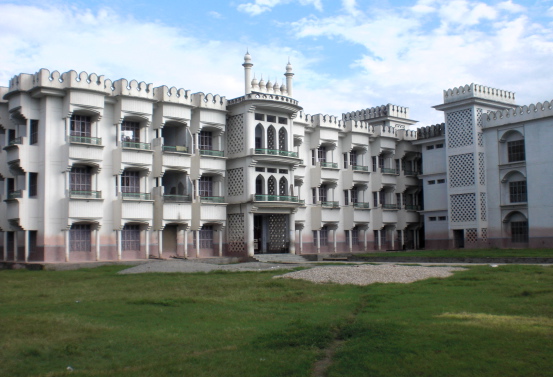
There we are met by the deputy Vice Chancellor Maulana Abdul Khalik Madrassi and Adil Siddiqui, the head of Public Relations. Madrassi is in his late 50s (but appears younger) and effectively manages the seminary on a day to day administrative level in the absence of the Vice Chancellor Maulana Marghoob Al-Rahman. Siddiqui is an extremely energetic 80 year old who does a superb job in presenting Deoband in the best light possible. Madrassi is also in charge of Deoband’s external relations and regularly travels to foreign countries, including European ones, in this capacity.
The interview starts off with an inquiry into the historical significance of Deoband. Both Madrassi and Sidiqi are keen to ground the emergence of the seminary in the context of the Indian nationalism that erupted in the 1850s to contest British rule in India. They maintain that this loyalty to India has persisted throughout the past 150 years. Moreover, they position Deoband within a broader Indian institutional framework, whose continuity is dependent on the stability and success of the Indian state. If Madrassi and Sidiqi are to be believed, the Deobandis are at heart Indian nationalists, of the institutional (as opposed to the cultural) variety.
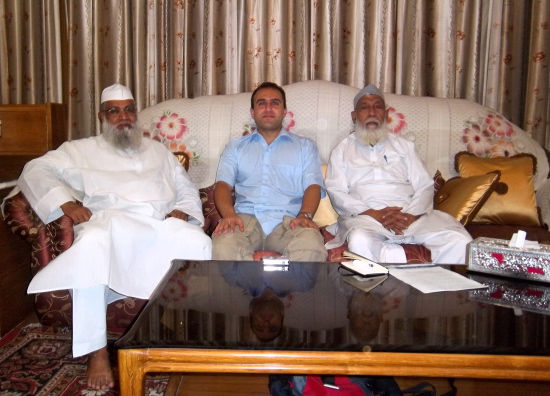
The discussion then shifts onto the curriculum. Madrassi, who is an ethnic Tamil from Madras (now known as Chennai) takes the lead. He claims that the Dars-e-Nizami (Nizami Education) continues to form the backbone of the Deoband curriculum, with vocational subjects increasingly introduced as part of a diversification process. These vocational subjects include anything from carpentry and calligraphy to journalism. There appears to be a growing recognition amongst Deoband leaders that not all of their students can find employment in the Islamic education and preaching sector, hence adding impetus to the expansion of the vocational training courses.
Securing a place in Deoband is tough and in recent years there have been on average 10,000 applicants per year. Out of these only 1,000 are admitted, usually after taking tough examinations and undergoing other vetting procedures. Most students initially embark on an 8-year comprehensive Islamic training course (which includes Arabic language and Hadith training), followed by two years of specialisation. Specialisation encompasses a wide range of subjects but it appears that Islamic Jurisprudence (Fiqh) is amongst the favourite.
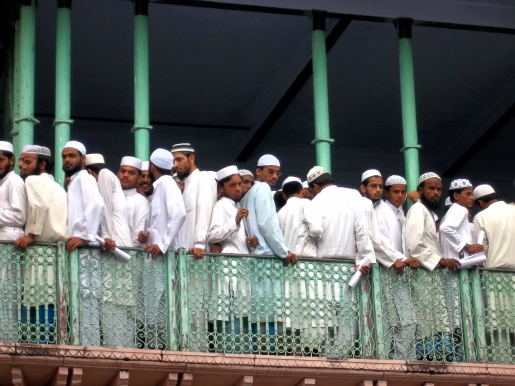
On the question of finance Madrassi claims that Deoband has an annual budget of 180 million rupees (around 3 million euros or 4 million US dollars at current exchange rates) and that it receives no financial help from any government. The money comes from private donors and the seminary fields 48 collectors throughout India.
Both Madrassi and Siddiqui are anxious to underline the reformist and scholastic nature of the seminary. They are at pains to explain that no Deobandi alumnus has ever been implicated in violent struggles anywhere. For instance, not a single Deobandi participated in the Afghan Jihad of the 1980s. They are of course referring to the core Deoband seminary in Uttar Pradesh, not the countless Deobandi madrassahs that dot the landscape in north-western Pakistan. They also claim that not a single Deobandi has ever been convicted of a crime in India.
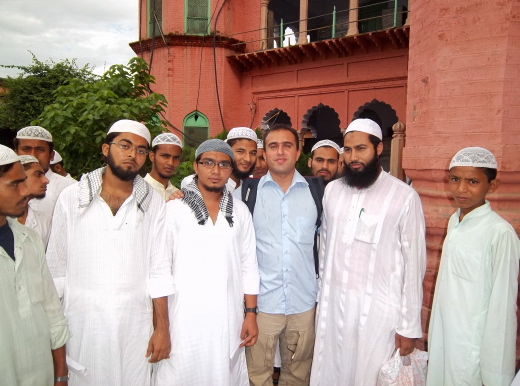
Madrassi denies any links to Deobandi madrassahs outside India but he admits that all such institutions, no matter where they are found in the world, can trace their ideological and methodological roots to the core Deoband, which he refers to as the “mother” institution. In this context he laments the decline in the number of foreign students in the seminary which he attributes to tougher visa restrictions imposed by the Indian Government in 2000. It is not clear from this interview why these restrictions were introduced ten years ago.
The deputy Vice Chancellor and the head of PR go to great lengths to underline the “purist” nature of the Deoband seminary, and it is in this context that they use exclusivist terms to describe other Islamic traditions, such as the Barelvis and Shi’ites, both of which are regarded as non-Muslim by the hardline Deobandis. They are particularly critical of the Barelvis, a traditional quasi-Sufi movement started in 1880 to counter the influence of the Deobandis and other reform movements, directing most of their criticism at the Barelvi practice of visiting the shrines of saints.
Regarding the Shi’ites, Madarrasi maintains that they are non-Muslims on account of their heterodox beliefs. When confronted with the question of whether it is true that one of the reasons Deobandis regard Shi’ites as non-Muslims is the belief that the latter cannot memorise the Quran, he says that this is the general belief and claims that in India it is difficult to find a Shi’ite who has become Hafiz-e-Quran (memoriser of the Quran). When he is confronted with the story of a Gujarati contact, and a Deobandi alumnus, who subsequently became critical of Deoband following his visit to Qom in Iran (the centre of Shi’ite learning) where he encountered countless Hafiz-e-Qurans, Madrassi fell back on the classical so-called Wahabi claim that Shi’ites don’t regard the Quran as a complete and unadulterated text.
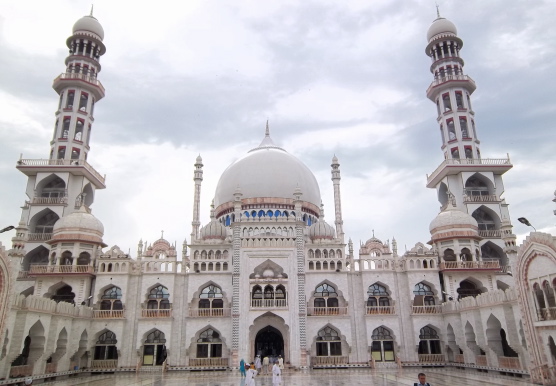
On the question of so-called Wahabism I put it to Madrassi that many critics of the Deoband seminary claim that Deobandi beliefs are just a small step away from full-scale Wahabism. In response the deputy Vice Chancellor makes a clear demarcation between the two schools of thought, before adding that if we consider the Wahabis and the Barelvis as two extremes, the Deobandis occupy the centre ground in that continuum.
While most scholars regard both the Deobandi and Wahabi movements as “reformist”, in the sense that both strive to strip Islam of innovations and what they see as harmful traditional practices, it is also accepted that there are important differences between these movements. Foremost, the Wahabis tend to spring from the Hanbali school of Sunni jurisprudence whereas the Deobandis are Hanafis. On the doctrinal front the so-called Wahabis are keener on cracking down on anything which they perceive to be a threat to Islamic monotheism (including effusive praise for the Prophet Mohammad), whereas the Deobandis readily express their love for the prophet. Moreover, the Deobandis have a more favourable view of Suffism.
The Deobandis are essentially Ash’ari in doctrine with a conservative interpretation of Fiqhi (theological) issues. The so-called Wahabis [3] reject the Ash’ari doctrine and do not formally subscribe to any of the four Sunni schools of jurisprudence (known as Madhabs). At a deeper doctrinal level, the Deobandis believe that the doors to Ijtihad (independent interpretation of Islamic texts) are closed thereby making it obligatory on the individual to engage in Taqlid (emulation). The so-called Wahabis on the other hand believe Taqlid to be Haram (prohibited) and make it obligatory on the individual to engage in his own idiosyncratic interpretation, even if he is not qualified to engage in such an exercise.
The closest phenomenon to so-called Wahabism or Salafism in the Indian subcontinent is the Ahle Hadith movement (Followers of the Sayings of the Prophet) which can trace its roots to the legendary late 18th century Indian Muslim reformer Shah Waliullah of Delhi [4]. While Ahle Hadith is a fringe phenomenon in Indian Islam, it boasts an impressive infrastructure on account of generous funding by donors in Saudi Arabia and the wider Persian Gulf region. Despite Saudi patronage, there are minor differences between the so-called Wahabis and Ahle Hadith. The latter maintain that while they are self-evidently “Ahle Hadith”, the Wahabis are “Ahle Quran”, meaning that the Wahabis attach less importance to the Hadiths in their overall approach towards the Islamic faith. Furthermore, while both movements aspire to transcend the four Sunni Madhabs, the Ahle Hadith movement is more critical of mainstream Sunnism.
Not surprisingly both Madrassi and Sidiqui express admiration for the Tablighi Jammat, the vast global Islamic missionary movement that grew out of the Deoband seminary. But it is on the question of the political Islamists that the Deobandi leaders’ answers are truly interesting. Without outwardly condemning Islamist organisations, such as the Jammat-e-Islami in the Indian subcontinent, Madrassi makes it clear that for Deoband the exclusive mission is Islamic education and training, not the pursuit of political power [5]. However, he adds the caveat that the creation of an Islamic state on a global scale is an aspirational issue for all Muslims, including Deobandis. According to Madrassi the division with groups such as the Jammat-e-Islami is sharpest over the conditions required to deliver effective Islamic education. He claims that groups like the JI believe that truly effective Islamic education and acculturation can only take place under an Islamic state, whereas the Deobandis believe that such education can be delivered under practically any conditions.
When talking about global politics Masrassi provides a critique of U.S. foreign policy in the context of prevailing Islamic grievances, in particular the U.S. led Western military presence in Afghanistan and American support for Israel. Perhaps ironically both Madrassi and Sidiqui express strong support for the Islamic Republic of Iran, claiming that Iranian foreign policy is the best in the Muslim world. They fully support Iran’s nuclear programme. “We have religious differences with the Iranians, but on the issue of politics we believe they are on the right path, the path of independence,” says Madrassi. By the same token, Madrassi is sharply critical of the foreign policies of the key Arab countries, in particular Saudi Arabia.
An Encounter with the Students
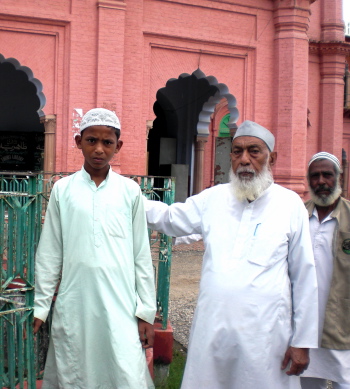
Deoband accepts students from all over India, in addition to other (mostly neighbouring) countries. However, since 2000, owing to the adoption of a tougher visa regime by the Indian Government, the flow of foreign students has dropped considerably.
Mohammad Golzar is one of the youngest students we encountered in the seminary. Only ten years of age he is from the northern Indian sate of Bihar and had only joined the seminary four days ago. He is currently memorising the Quran. Despite appearing pensive and self-absorbed, he denied feeling anxious.
Abdul Samad is more typical of Deobandi students. He is 22 years of age and is currently taking his final classes on Hadith training. Born and bred in the north-eastern Indian state of Assam, he is spending his third year at Deoband. Abdul Samad’s aspiration is to teach at a madrassah, a typical career path for many Deobandi alumnis.
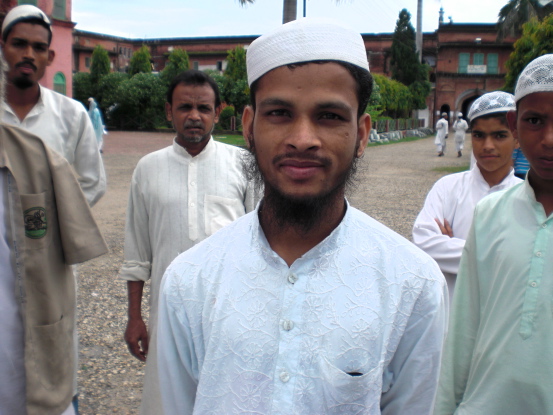
Mohammad Reza Memon (21) and Faisal Mir (19) are different to other Deobandis for a variety of reasons, notably their affluent backgrounds and their desire to teach abroad. Both are from Mumbai, although Faisal Mir traces his origins to West Bengal. Both have obtained their Indian School Certificate and hold qualifications in Information Technology. Their choice of residence in a relatively nice apartment just outside the seminary is a clear indication of their affluent background. Most Deobandi students have to endure tough and over-crowded living conditions. However, new dormitories have been built and living conditions are expected to improve markedly in the near future.
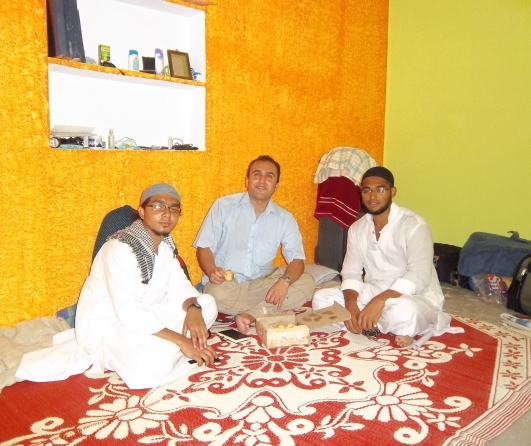
All the students we talked to – irrespective of regional or socio-cultural background – expressed an unflinching belief in the ideology and methodology of the Deoband seminary. This seemingly unshakeable belief, passed on from generation to generation, is arguably the greatest enduring quality of the Deobandis. It is the single most important reason to believe that the Deoband seminary will survive for another 150 years. Whilst outside its Indian birthplace the Deoband movement has aroused controversy and become entangled with complex sectarian and political conflicts, inside India it continues its quiet and benign existence as a centre of Islamic knowledge and reformist Islamic thought.
Mahan Abedin
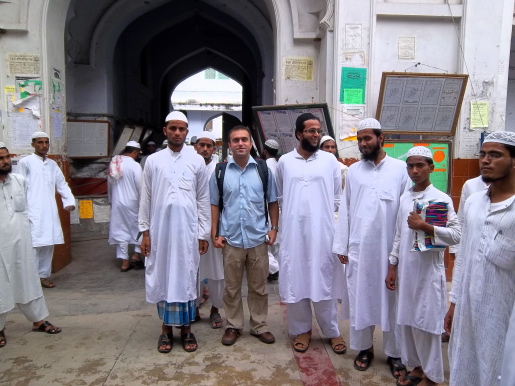
Notes
[1] Notwithstanding its impeccable Deobandi origins and connections, the Tablighi Jamaat consciously distances itself from all other Islamic schools of thought, movements and trends. Moreover, Tablighis scrupulously avoid politics as part of a broader effort to ward off publicity and controversy.
[2] See for example Rick Bragg “Nurturing Young Islamic Hearts and Hatreds”, New York Times, 14 October 2001 and Celia W. Dugger, “Indian Town’s Seed Grew into the Taliban’s Code”, New York Times, 23 February 2002.
[3] The followers of Muhamamd Ibn Abdul-Wahab regard the term “Wahabi” as derogatory. Instead they refer to themselves as “Muwahidoon” or “Unitarians”.
[4] Note that this interpretation is not widely accepted. Note also that the Deobandis have a favourable view of Shah Waliullah of Delhi.
[5] The Jammat-e-Islami is split into five independent organizations in the Indian Subcontinent, with national organizations in Pakistan, India, Bangladesh, Sri Lanka and Indian-administered Kashmir.
Mahan Abedin is a research fellow at the New Delhi-based Institute for Defence Studies and Analysis. Previously he has worked with numerous think tanks, including the Washington-based Jamestown Foundation and the London-based Centre for the Study of Terrorism. He has also been active in journalism, having worked for the Beirut-based Daily Star and most recently the Irbil-based AK News Agency where he was chief editor of the Persian and English sections. Born in Iran, but raised and educated in the United Kingdom, Abedin is a frequent traveller to the Islamic Republic where he is a consultant to independent media.